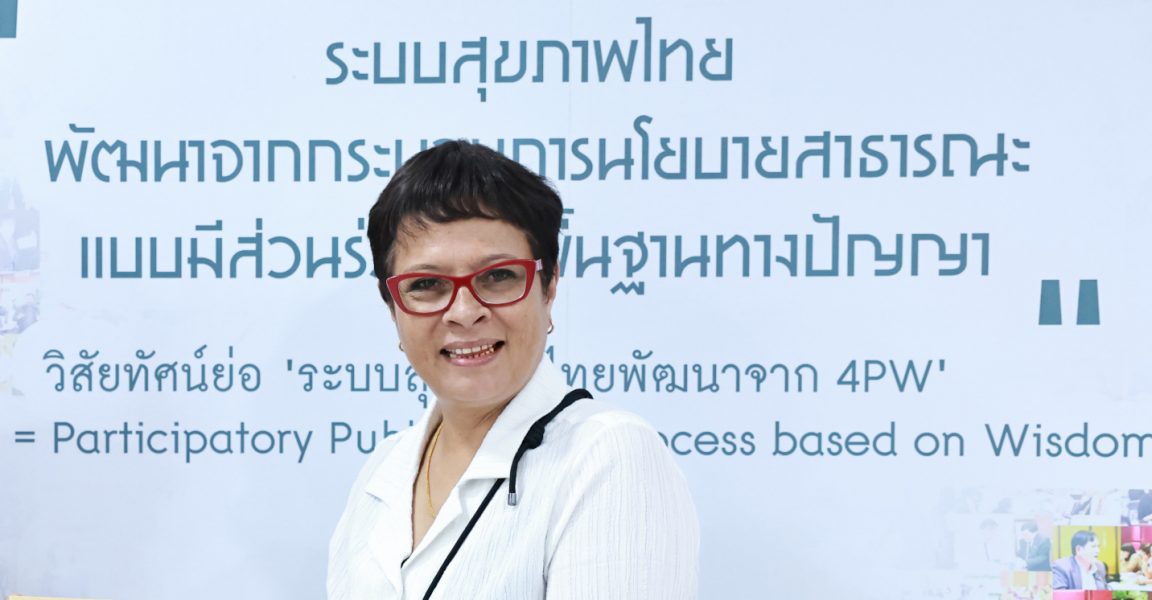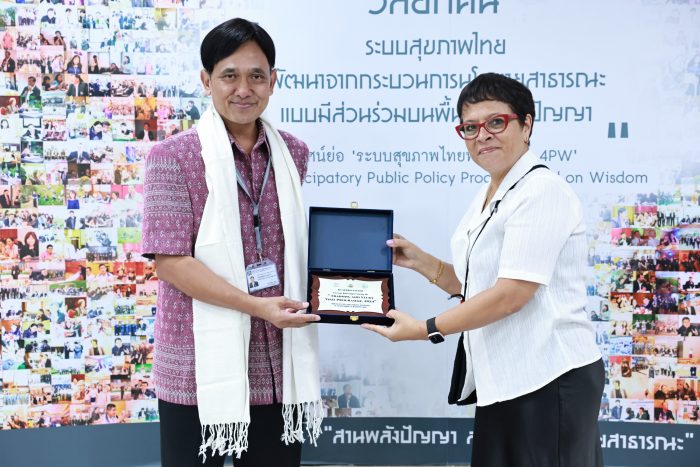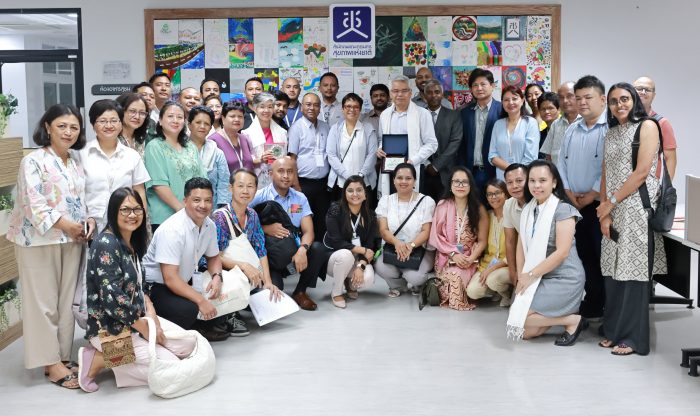
Meghalaya Health Minister visits NHCO Thailand to discuss public policy strategies
Photo by NHCO Media
Health Minister of Meghalaya, India, Dr. Mazel Ampareen Lyngdoh visited Thailand’s National Health Commission Office (NHCO) on September 12, 2024. Accompanied by Mathu Ramachandran, Counsellor at the Indian Embassy in Bangkok, representatives from the Asian Institute of Technology (AIT), and a study group from the Meghalaya Administrative Training Institute (MATI), the delegation aimed to learn from NHCO’s expertise and discuss strategies for effective participatory public policies.
The Health Minister emphasized that Thailand’s health system charters and assembly are inspiring tools and valuable national assets for creating effective policies. She stressed the importance of research and public support in any country. Highlighting the need for ongoing knowledge generation and experience exchange with Thailand, she also addressed social issues in Meghalaya, including challenges faced by commercial sex workers, drug use, and rising HIV infections, which demand multisectoral collaboration from various stakeholders.
Dr. Weerasak Putthasri, the advisor on global health at NHCO Thailand, stated that a good participatory public policy must foster a sense of ownership, beginning with co-design, co-decision, and co-implementation. He explained that public health, social, and environmental policies are interconnected and related to well-being. This aligns with the concept of Social Determinants of Health (SDH) and Health in All Policies (HiAP). Therefore, a participatory public policy platform that encourages mutual learning, information exchange, and joint direction among the academic, policy, and public sectors is crucial to the policy’s success.
The meeting stressed key strategies for effective participatory public policy, including fostering social participation for the decentralization of local health systems, creating participatory mechanisms at all levels to include all stakeholders, supporting technical capacity through specific mission platforms, integrating local wisdom and trust with social participatory tools, and involving strategic partners as well as conducting community consultations and engagement.

Dr. Suthep Petchmark, Secretary-General of National Health Commission, Thailand and Dr. Mazel Ampareen Lyngdoh ,Health Minister of Meghalaya, India, are exchange suveniors at the NHCO Office (Thailand)

A group photo of the Maghalaya colleagues.
